An Introduction to Real Estate Website Builders
Real estate agents, brokers, and property managers can greatly benefit from a strong online presence. A site can present property listings, describe your services, and attract new clients.
There are many ways to make that site, from low-cost DIY tools to specialized platforms with fancy extras. This article will share the core details of several options, along with new information about all-in-one lead generation, concierge design, AI-driven platforms, and more.
Some fresh insights reveal that confident website builders cater to luxury markets, while others focus on streamlined lead capture. This means you can find exactly what you need to showcase your brand and give potential buyers a glimpse of what it’s like to work with you. Read on to see how these platforms differ and why they might be right for your real estate business.
Table of Contents
- What is a Real Estate Website Builder?
- 9 Best Real Estate Website Builders
- Additional Specialized Real Estate Website Solutions
- How to Choose the Best Real Estate Website Builder
- Best Real Estate Website Builder Price Comparison
- What is IDX?
- Key Real Estate Website Features
- How We Test Real Estate Website Builders
- What is the Best Real Estate Website Builder?
What is a Real Estate Website Builder?
A real estate website builder is a platform that helps create and host sites geared toward property listings, lead capture, and appointment booking.
These tools can handle IDX integration, contact forms, or marketing features. Some offer extras like virtual tours, AI chatbots, or prewritten property content.
With so many choices, you can select a platform that matches your price range and desired customization level.
10 Best Real Estate Website Builders
1. WordPress
WordPress is a massive player in web creation. Its self-hosted version allows you to set up your own hosting and pick any theme or plugin you like, which is ideal if you want total control. You can install IDX plugins to automatically show new listings and many real estate themes offer property search tools, advanced gallery layouts, or contact forms.
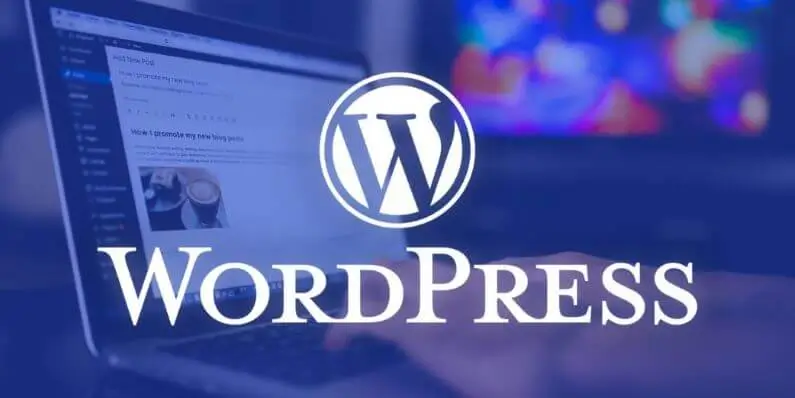

Why People Like WordPress
- Plenty of themes and plugins
- Options for fast hosting to keep your site running
- Flexible enough to build custom property pages
- Suitable for integrating marketing and lead capture
WordPress is free, though you’ll pay a hosting provider to put your site online.
2. Wix
Wix is popular for its drag-and-drop editing, built-in hosting, and wide range of apps. Real estate pros can choose from a dozen templates designed for home listings. Some advanced features, like IDX, need an external app or code snippet. Wix also provides marketing perks like SEO settings and an integrated email platform.
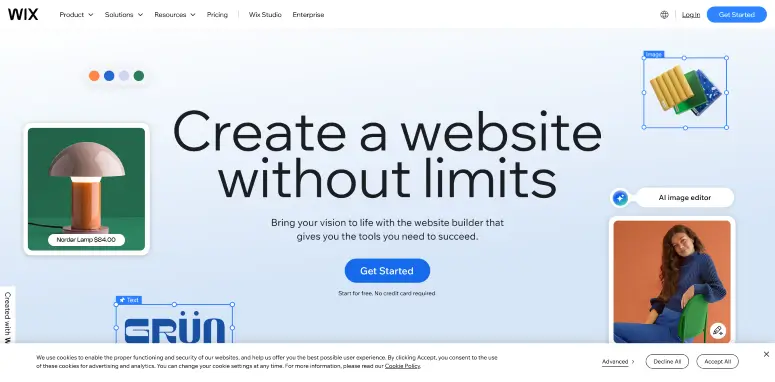

Wix Highlights
- Real estate-focused templates
- Apps for lead capture, calendars, or mortgage calculators
- Easy design through a visual editor
- Hosting and domain included in paid plans
Plans begin at around $16 monthly, with a free tier if you’re okay with ads and a Wix domain.
3. Hostinger AI Website Builder
The Hostinger AI Website Builder crafts a starting layout for you after a short Q&A session. You can then adjust things like colors, images, or text. The plan includes free SSL, weekly backups, and easy connections to Google Analytics. If you need an IDX feed, you can embed it with a simple snippet. Some agents skip IDX altogether and just upload listing pages on their own.
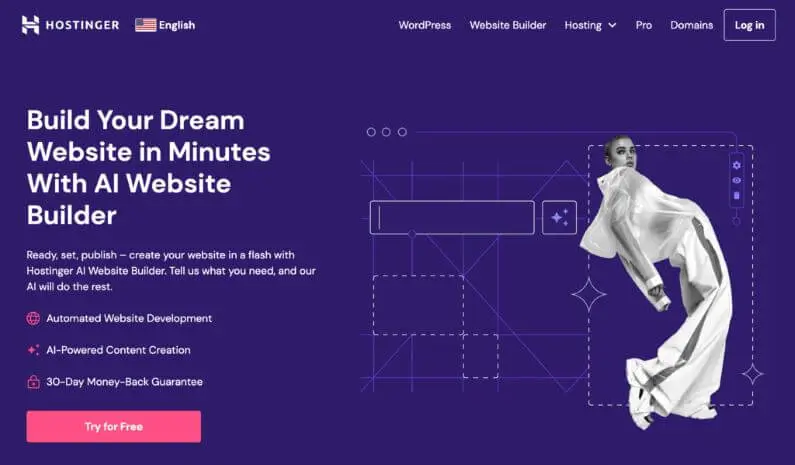

- AI-based site design
- Can manage up to 100 sites in top plans
- Quick setup for real estate pages
- Budget-friendly, with discounted yearly deals
4. Squarespace
Squarespace is a go-to for those who want a polished, modern site. It has real estate templates, scheduling tools, and a strong focus on design. You can embed IDX code with minimal fuss, connect your socials, and track traffic through built-in analytics. The Business plan or higher offers more advanced marketing and code injection, which is important if you want to integrate listings fully.
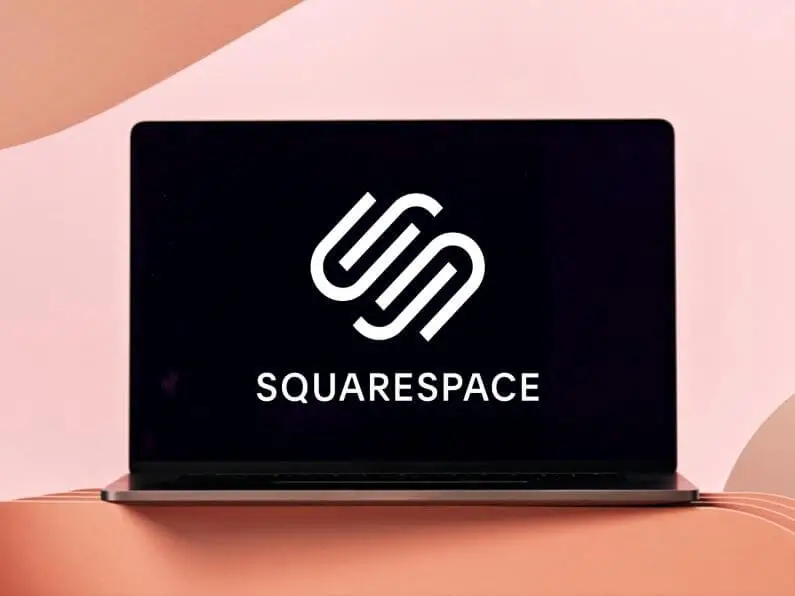

Squarespace Highlights
- Sleek and professional layouts
- Appointment scheduling for property tours
- Optional marketing features like email and pop-ups
- Drag-and-drop editor with a grid-based system
Plans start around $16 monthly, with extra features at higher tiers.
5. Shopify
Though Shopify is mainly for eCommerce, some real estate pros have found ways to use its robust app store. You can add VR tour apps, contact forms for leads, and an option to run property auctions online.
Shopify doesn’t have an extensive library of real estate themes, so it may require extra work, but the advanced sales and marketing tools might come in handy if you plan to sell property services or merchandise.


Why Shopify Could Work
- Built-in payment system for deposit-based auctions
- Apps for 3D tours and lead capture
- Good marketing tools for email and social channels
Shopify’s Basic plan costs $39 monthly, plus possible theme or app costs.
6. Webflow
Webflow grants advanced control over layout and function. You can build your site from scratch or choose a ready-made real estate template from the Webflow marketplace. Many agents use Webflow for advanced designs, animations, or interactive maps. It’s more involved than some site builders, but it can be rewarding for a custom look.
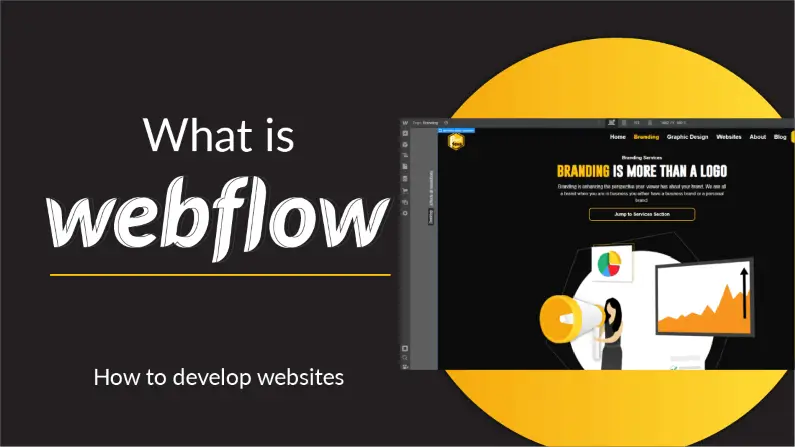

Webflow Perks
- Flexible editor with design freedom
- Is it possible to integrate IDX through added code
- Plenty of marketing apps and add-ons
- Free starter plan
Paid tiers begin near $14 monthly (billed annually).
7. Zyro
Zyro is a lower-priced option from Hostinger. It’s straightforward, featuring a drag-and-drop setup with pre-built blocks, AI branding tools, and integrated hosting. You won’t find built-in IDX, though you can embed code from other sources. Zyro suits new agents or smaller teams who want to keep costs in check but still launch a decent real estate site.
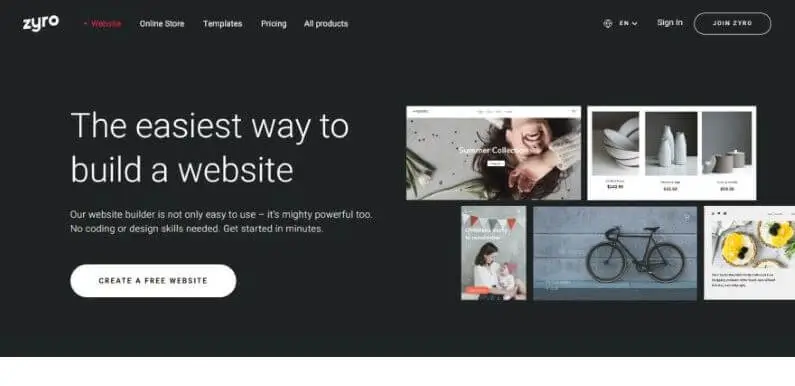

Zyro Points
- Plans under $3 per month when discounted
- AI-driven brand logo or text suggestions
- Enough features for a simple site
- Handy heatmap to see user focus
8. Gator Website Builder (HostGator)
Gator Website Builder is HostGator’s drag-and-drop product. It has over 150 templates, a free SSL certificate, and a free domain for one year. You can embed lead forms, email campaigns, and property search modules. Its scheduling feature works for booking showings, and you can store images or videos of properties.
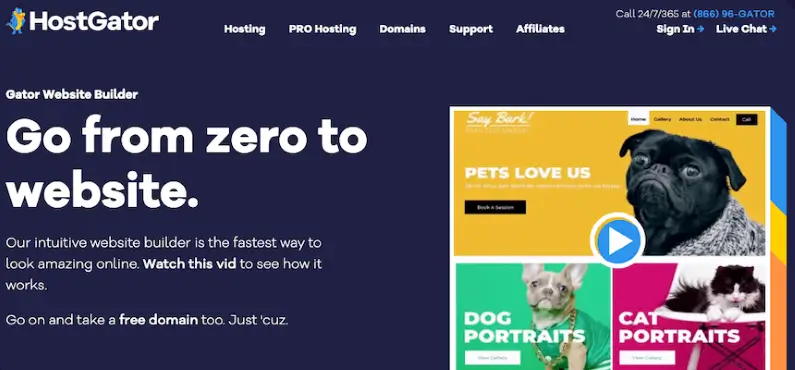

What’s Good About Gator
- Lots of templates with built-in elements
- Free SSL for security
- Email marketing included
- Appointment scheduling for site visitors
Month-to-month costs can be higher, but signing a more extended contract lowers the monthly bill.
9. Placester
Placester is dedicated to real estate. It features an IDX manager, CRM integration, and specialized site templates. If you’re too busy to build your site, you can also pay for a “do-it-for-me” package. It starts around $79 a month (annual billing) but includes the features agents often require, like lead capture and code-free editing.
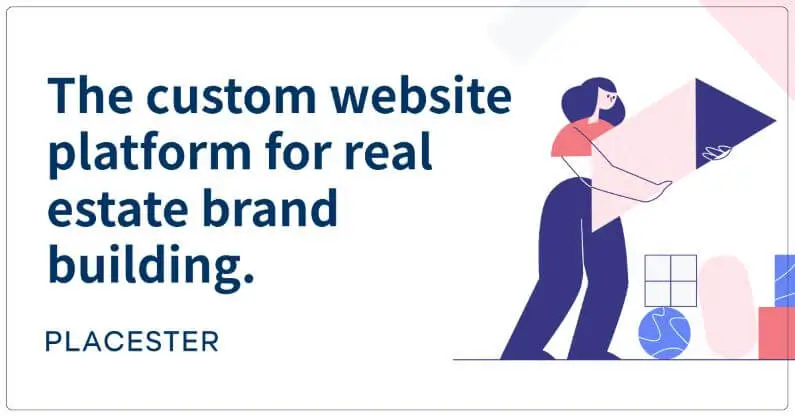

Placester Benefits
- IDX support out of the box
- Built-in CRM for leads
- Concierge service for design
- 30-day trial
It’s a pricier option but can save time if you want a real estate-focused partner.
10. GoDaddy
GoDaddy includes a quick ADI process that asks questions and produces a basic real estate design. You can then tweak colors, text, or images. There aren’t as many specialized real estate features as some rivals, but GoDaddy shines at marketing thanks to integrated email promotions, social ads, and other lead-gen features.
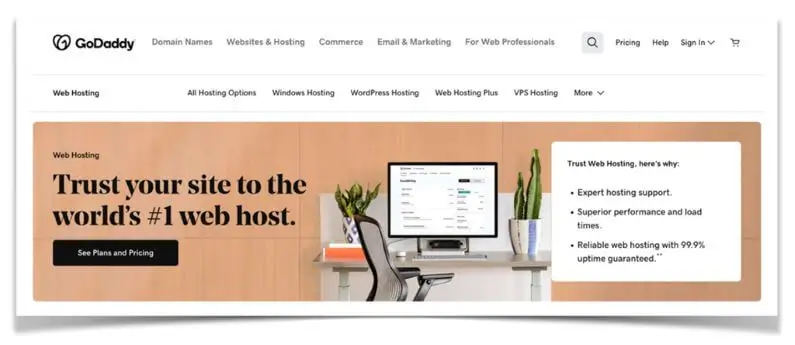

GoDaddy Highlights
- AI builder for speed
- Real estate themes with property image carousels
- Step-by-step guide for adding IDX code
- Good marketing features for attracting clients
A free plan (with ads) is available, while paid plans start at nearly $9.99 monthly if billed annually.
Additional Specialized Real Estate Website Solutions
Aside from the builders above, some platforms focus on advanced lead generation, AI-driven services, or high-end design. Here’s a quick look at a few more that address unique needs:
- Easy Agent PRO: Designed for streamlined lead capture. Offers text-based replies to form submissions and “Squeeze” landing pages to attract new leads. It also provides weekly SEO-optimized content that boosts your real estate site’s rank.
- iNCOM: Known for providing value to agents on a budget. It has an IDX-friendly site builder, a basic CRM, and a 30-day money-back guarantee to test it risk-free.
- Luxury Presence: This service is built for high-end properties and focuses on custom branding and expert marketing services. It’s tailored for luxury listings and costs a premium.
- Lofty Uses AI to capture and convert leads. It includes a lead analysis tool that guesses how close leads are to buying or selling, plus a chatbot that walks clients through basic steps.
- Real Geeks offers ready-to-use site templates plus a CRM that helps with drip email and texting. The templates may lack deep customization, but they’re bright and functional.
- AgentFire is ideal for agents who want more style choices. You can choose from various templates, add lead magnets, and customize your site to match your personal brand.
Each of these solutions tackles different parts of the real estate world. Some emphasize design, while others emphasize robust lead capture or local SEO. Prices vary widely, so checking each builder’s plan before committing is wise.
How to Choose the Best Real Estate Website Builder
A site helps attract buyers, sellers, and leads. But not every builder offers the same set of tools. Here’s what to keep in mind:
- Budget: Compare costs and features. Some all-in-one plans include IDX and a CRM, while others require add-ons.
- Lead Generation: Some builders feature advanced landing pages, text automation, or AI chatbots. These can save you time if your main focus is gathering leads.
- IDX Support: If you need property feeds from the MLS, check if your chosen platform supports IDX or has a quick workaround.
- Customization: Some platforms give you total freedom, while others rely on more restrictive templates. Decide if you need a unique look or just a simple design.
- Extra Services: Options like concierge design or specialized content can be helpful if you lack time or want added expertise.
Best Real Estate Website Builder Price Comparison
Below is a summary of the monthly starting prices for each builder. Some offer free plans or trials, while others have only paid tiers.
| Builder | Price/Month | Free Option | Link |
|---|---|---|---|
| WordPress (self-hosted) | ~$2.99* | Yes | Visit |
| Wix | $16 | Yes | Visit |
| Hostinger AI Builder | $12.99 | No | Visit |
| Squarespace | $16 | No | Visit |
| Shopify | $39 | No | Visit |
| Webflow | $14 | Yes | Visit |
| Zyro | $2.59 | Yes | Visit |
| Gator Builder | $4.95** | No | Visit |
| Placester | $79 | No | Visit |
| GoDaddy | $9.99 | Yes | Visit |
*Cost covers hosting. Software is free.
**May require a yearly contract.
What is IDX?
IDX stands for Internet Data Exchange. It’s a system for sharing property listings so sites can display accurate data from the MLS. Agents benefit from real-time listing updates and dependable details, while site visitors see fresh properties without leaving your site. IDX is central to building trust in real estate because it proves your site has reliable content.
Key Real Estate Website Features
A real estate site can do more than hold your phone number. Look for these features:
- Lead Capture
- Landing pages, text responses, or signup forms
- Scheduling tours or open houses
- Drip email campaigns to stay in touch
- IDX Integration
- Fresh property updates
- Search filters for location and price.
- Automated listing pages
- High-Quality Media
- Slideshow or galleries to show off homes
- Video or 3D walkthroughs
- Fast load times for large images
- Marketing & SEO
- Email promotions to highlight new listings
- Tools to rank on search engines
- Social media sharing widgets
- Concierge or AI Tools
- AI chatbots to guide clients
- Automated lead scoring
- Expert-designed templates
How We Test Real Estate Website Builders
We review each platform using design, feature set, user-friendliness, Support, value, and more categories. Real estate websites need IDX, marketing tools, and lead gen features, so we weigh those factors more heavily. Our process includes:
- Design Flexibility (35%): The ability to show properties in modern, creative ways.
- Website Features (30%): Real estate must-haves like IDX, advanced forms, and local SEO.
- User Experience (13%): A more straightforward builder suits busy agents.
- Help and Support (12%): Everyone wants quick solutions to any site glitch.
- Sales Features (10%): Tools for listing or selling property extras.
- Value for Money (5%): Balancing price with performance.
- Customer Score (5%): Direct feedback from people who tried each builder.
By focusing on real estate use cases, we find the builders that meet or exceed common agent needs.
What is the Best Real Estate Website Builder?
WordPress and Wix remain top picks for many agents. WordPress offers endless themes, IDX plugins, and hosting choices, perfect for those seeking a customized approach.
Wix is user-friendly, with a robust app store for real estate tasks and a more straightforward design process. Squarespace is a design-forward option for polished layouts and scheduling features, while GoDaddy works well if you want strong marketing tools at a low cost.
Some agents want more specialized choices, like a luxury market builder or an AI-based platform. In that case, check out solutions like Luxury Presence or Lofty, which cater to distinct needs like high-end branding or AI-driven lead scoring. Placester also stands out if you want an honest estate-specific site builder with a built-in CRM.
No matter what, aim for a site that fits your style and budget. Whether you’re hunting for advanced lead capture, quick drag-and-drop design, or integrated IDX, this list has a platform to help you impress buyers and sellers.
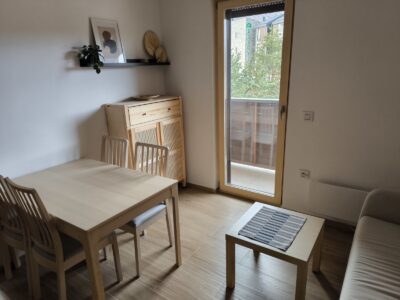
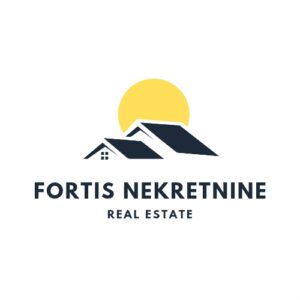
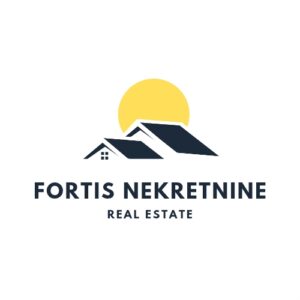
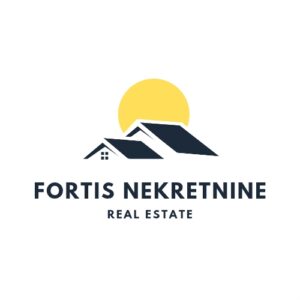
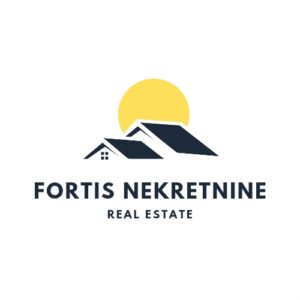






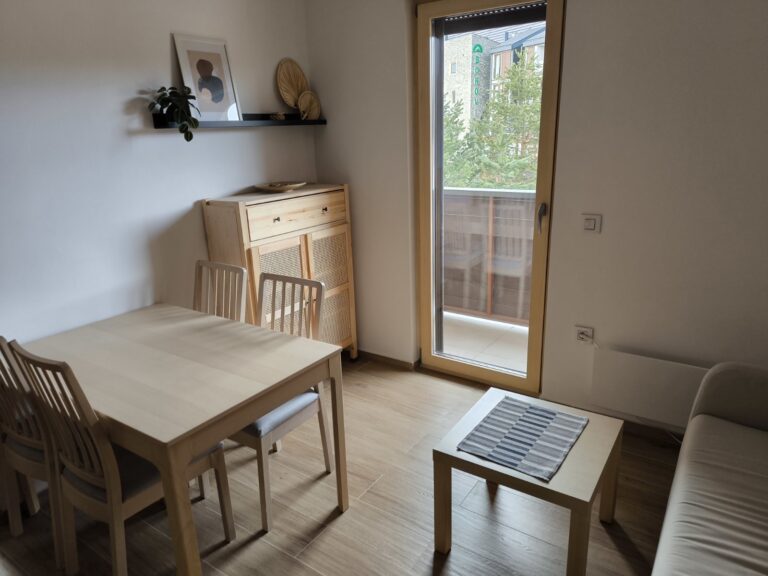
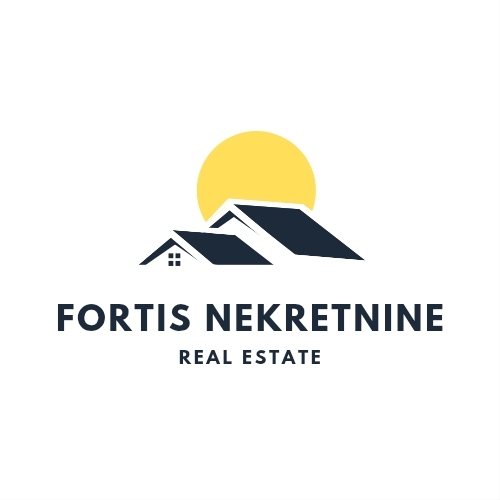
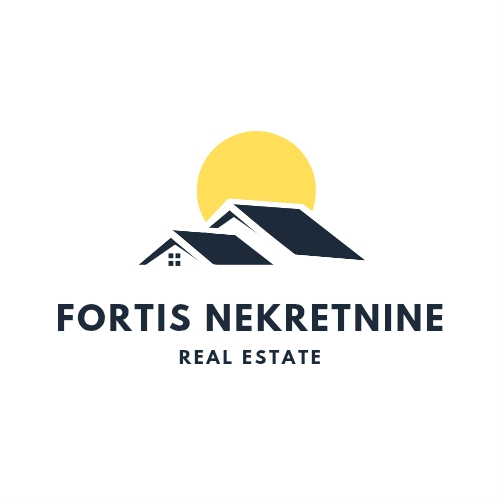

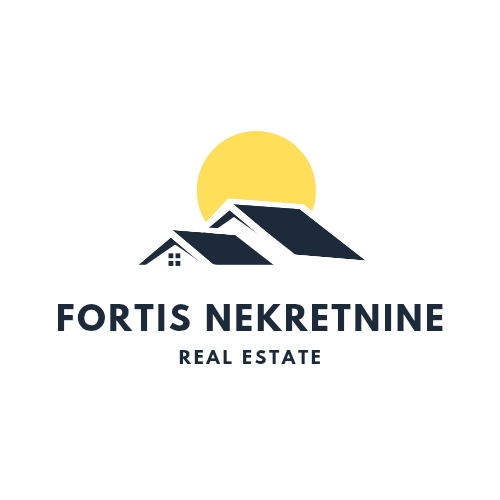
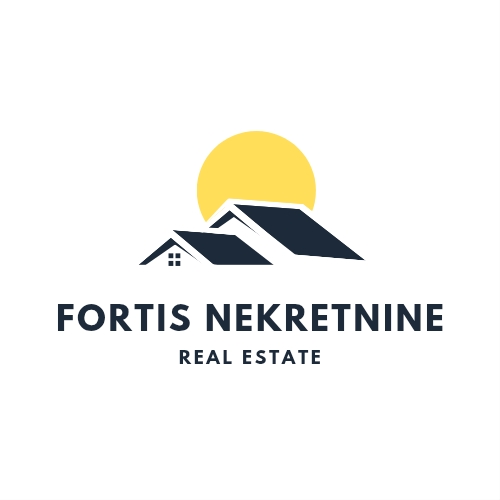
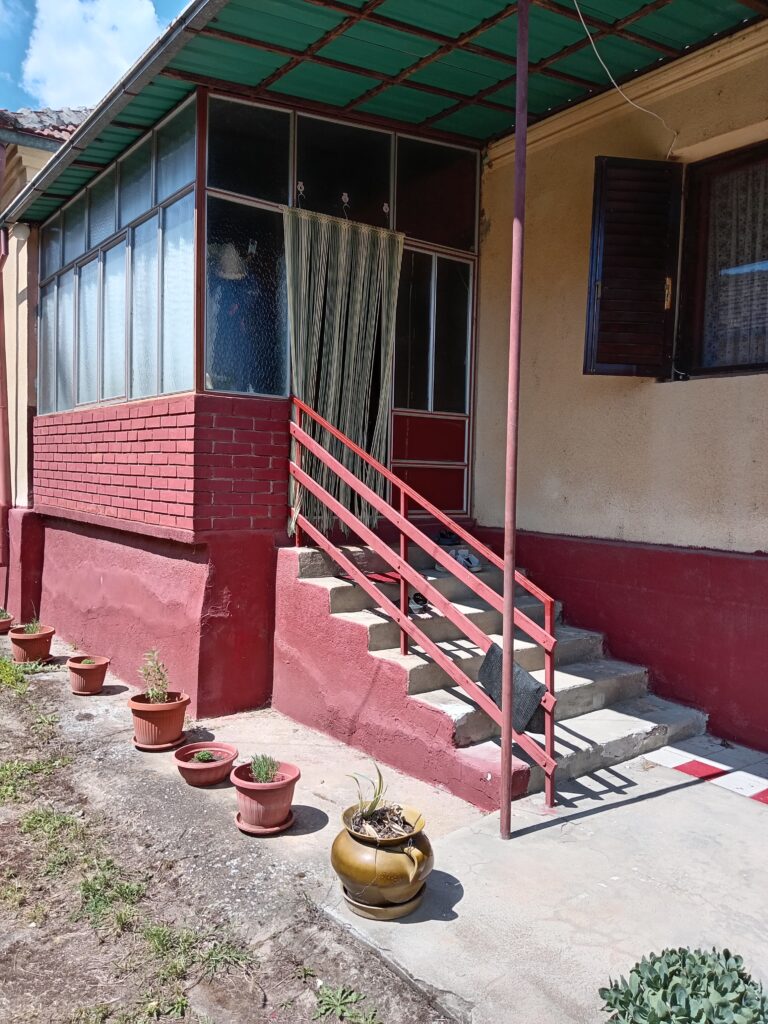
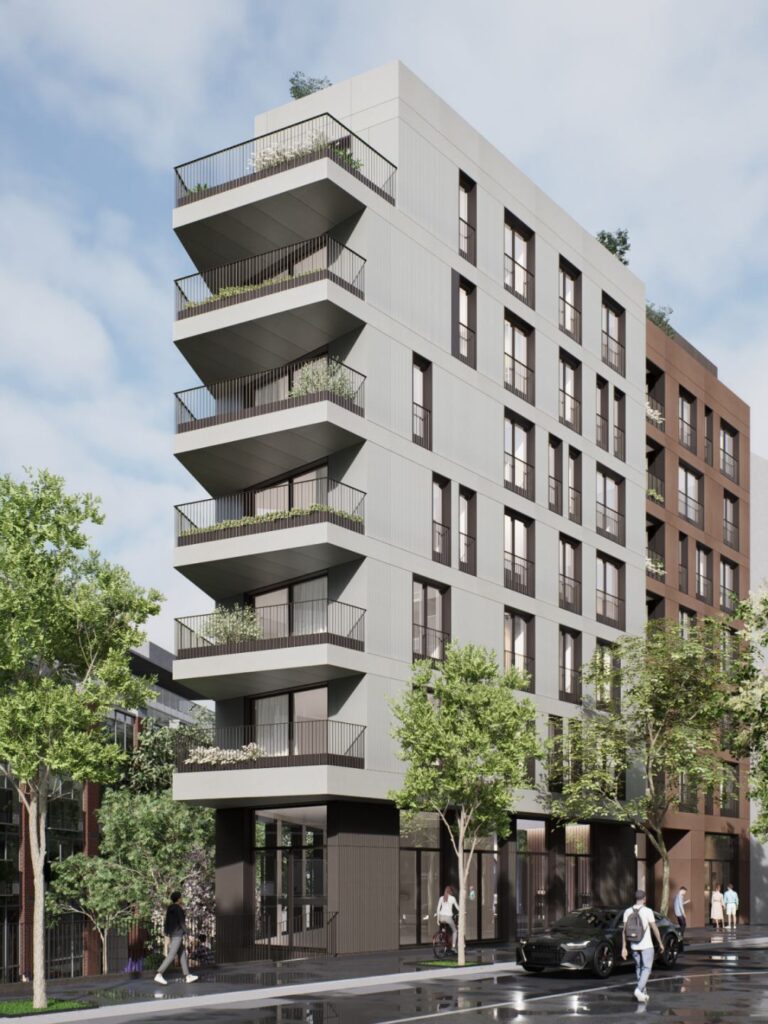

+ There are no comments
Add yours